Israel is frequently lauded as a cannabis haven. It’s something you see on the streets of Tel Aviv, some corners of which seem like the Middle East’s very own Venice Beach. On Friday afternoons before Shabbat, the Jewish sabbath, a drum circle congregates on the north side of the Dolphinarium, a muraled haven born from the ashes of a bombed out discotheque, overlooking the Mediterranean waves. Next, enter Shuk HaCarmel, a chaotic outdoor market of vendors yelling over each other in Hebrew, of psytrance blasting from kiosks, of dreadlocked Israeli hippies beckoning you to sell cheap bling, and if you ask the right way, maybe some cheap bud.
Rife with graffiti, grunge, and ganj, you need not go far before finding yourself in a skunky haze. In fact, Israelis smoke a lot of weed. By global standards, Israel is one of the most 420-friendly countries — meaning that around 27 percent of the population between the ages of 18 and 65 has hit the reefer in the past year.
It’s not just cultural, either. Among the global cannabis community, Israel is celebrated for leading the world in medical marijuana research — and rightfully so. In 1963, tetrahydrocannabinol or THC, the main psychoactive compound in cannabis, was discovered by the studious, soft-spoken Israeli chemist Raphael Mechoulam, who emigrated from Bulgaria just after the Holocaust. Since the 60s, while America has waged a losing war on drugs, Israel has pioneered groundbreaking research into the cannabis plant, paving the way for states like California and Colorado to later develop state-sanctioned medical marijuana industries based on science and data, to buttress anecdotal evidence from the black market.
Yet despite Israel’s well-earned reputation in the field of cannabis research — completely legal and backed by universities and government health officials — its own medical cannabis program is surprisingly meager. Relatively few patients qualify to receive medical cannabis, and only eight companies are currently licensed to grow and sell it. Meanwhile, the government sets a fairly low, fixed price for medical cannabis, which makes the industry prohibitively expensive to enter for most entrepreneurs who aim to “touch the plant.”
What’s more, in most regions outside Tel Aviv, petty drug crimes like pedalling small amounts of weed, even around hippie havens like Jerusalem’s Nachlaot, could easily land you behind bars if you get caught. Never mind Israel’s heavily publicized “decriminalization” policy, which earned widespread media attention across the globe back in March — for anyone who isn’t one of the country’s 28,000 medical cannabis patients, weed remains an illegal drug that continues to fuel a small, but mighty community of activists fighting for legalization.
Is Israel’s cannabis-forward reputation a myth?
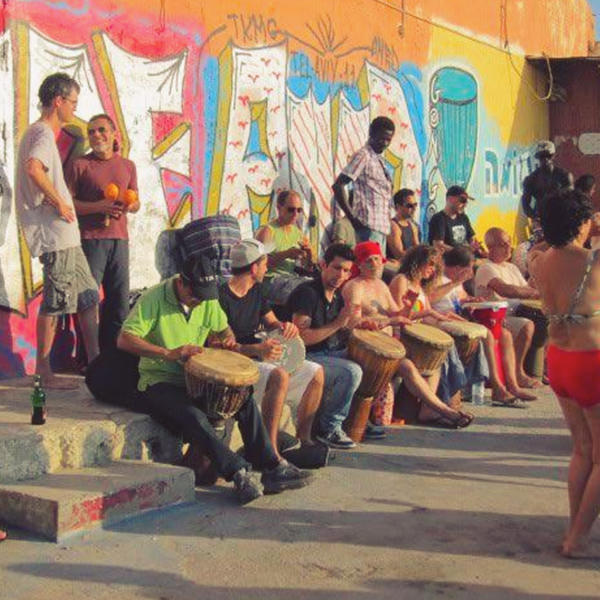
On a warm Wednesday afternoon in June, Tel Aviv’s cafés are brimming with people. They seem to have all the time in the world to lounge at small round tables sipping coffee, smoking joints, and soaking up the early summer sunshine before the desert heat and sandstorms drive them inside gasping for AC. Tourist groups full of boisterous American college students parade around the city, clutching falafel in one hand, iPhones in the other, as they snap photos of sites like Independence Hall, Prime Minister Yitzhak Rabin’s memorial — and nearby, official-looking signs around Rabin Square and Rothschild Boulevard that in Hebrew, Arabic, and English read, “Designated Cannabis Zone.”
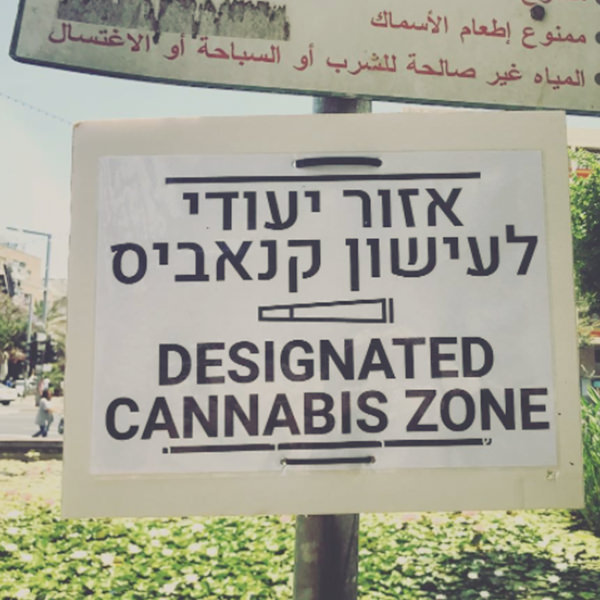
The tourists love them, muses “Shredder,” the street artist responsible for the signs. No, there aren’t actually sanctioned zones for smoking weed; they instead protest the government’s shoddy decriminalization policy.
Donning flip-flops, a trucker cap, and a graphic tee, the millennial ad-man-turned-artist looks like he’s been washed up from the waves before cruising over to a glade in Rabin Square to chat. “It’s bullshit, cannabis wasn’t decriminalized,” he says of Israel’s new decriminalization policy.
Under the bill, which won’t even go into effect until around 2018, personal use is still illegal, and subject to criminal punishment. Justice remains in the hands of the cops’ discretion. Anyone previously busted for weed must keep it on their record, and still, anyone busted with as little as 15 grams risks three years in jail. On the first offense, you’re subject to 1000 shekel ($280) fine for simple possession, and a 2000 shekel ($560) fine on the second offense. And in order to only be charged with a just a fine, you must admit the felony, and without cursing the police or throwing away the joint, which would be another offense altogether. On the third count, you’ll be sent to treatment, or have your driver’s license confiscated, and the fourth offense is considered criminal. Plus, the smell of weed alone is enough to invite cops to search your home.
The police also profile anyone who looks like a cannabis user: men with long hair, anyone with tattoos, piercings, or “whoever seems a little bit not like the average person,” says Shredder. “In Jerusalem, the cops are really tough. They can find half a joint and take you to the station, investigate you, humiliate you and whatever.”
The average Israeli, he says, recognizes that the decriminalization policy doesn’t mean much; and they know they probably have little chance of legally obtaining medical cannabis, either. But a great deal of medical bud gets diverted to the black market. “A lot of it,” says Shredder. “That’s why I’m willing to pay a little more to get something I at least know is supervised.” He removes a perfectly rolled joint out of his pocket. With no regard for who’s looking, he lights the joint as if it’s just a cigarette. Dog walkers pass by, an elderly man lounges less than 30 feet away, the water fountain trickles, pot smoke rises toward a cloudless sky, and life goes on.
It’s the Israeli way, to accept that shit happens and continue living life regardless. In spite of its many problems, Israel is the world’s eleventh happiest country. In the tiny, war-torn nation, citizens seem to manage: They fulfill obligatory army service, they travel, they hide in bomb shelters, they dance in clubs, they argue, they drink wine on Friday nights, they scorn the government or their enemies.
And they smoke a lot of weed. Whether they do it to recreate or to medicate — undiagnosed PTSD runs rampant among a nation of veterans — Israelis have a rambling rapport with the cannabis plant.
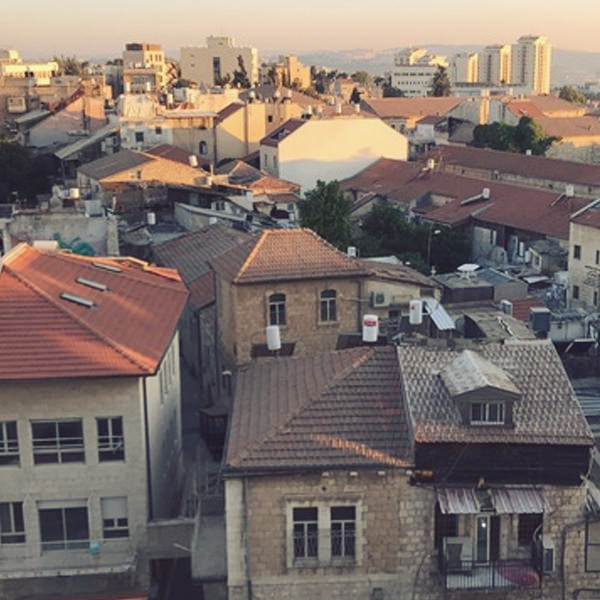
Israel wasn’t always so cannabis friendly or cannabis rich. Initially, the only thing you could get was hashish, nicknamed Nafas (“breathing” in Arabic), which is popular among Arabs, Shredder explains. Then in the 80s when Israel went to war with Lebanon, actual bud came onto the black market. “They would call it grass,” he says. “Then in the 90s and 2000s the only thing you could buy was grass in a box of matches. Back then, it was measured by ounces, not even grams.”
Weed seeped into the culture, as it does, through music, art, literature, religion, and common slang. The 420-friendly alt-rock band Girafot, for instance, which was popular throughout the 90s, had a song called “Rami Moo’asham Be’Hachzakat Samim Kalim (Rami is Accused of Possession of Soft Drugs).” Meanwhile cannabis itself is considered by rabbis to be kosher, so long as you don’t light up on Shabbat.
Around 2005 weed became scarce again. “We only had hashish, and it was very expensive,” Shredder recalls. Then synthetic cannabis became popular at bodegas. “The market was so dry that people actually bought it,” he says, proud he never tried the stuff, himself. “Then was the hydro [hydroponic] era when people started to grow their own,” he continues.
They still do to this day, with rumors that growing weed is popular especially among the Haredim, or ultra-Orthodox, who grow and sell it for extra cash to supplement impoverished lives spent studying religion all day.
By 2012, Israel had accumulated nearly 10,000 medical marijuana patients, after having established the program in the early 90s. Between medical and hydroponic home-grow (estimated in nearly 100,000 homes) better quality weed finally surfaced on the black market. Shredder casually takes another hit as he considers Israel’s long drawn history with cannabis. “By the way,” he asks, “did you want to smoke?”
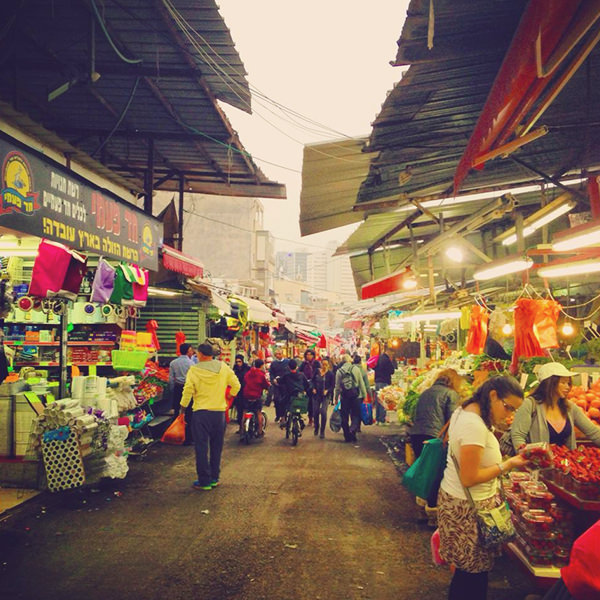
Israel’s legal history surrounding weed tells a bit of a different story, though. Court decisions and formal studies indicate the vast majority of Israeli weedsters are average people without criminal records except cannabis use, according to Member of the Knesset (Israeli parliament) Sharren Haskel. Under the law, which deems millions of recreational smokers to be “criminals,” personal use of weed can result in up to three years in prison. Possession of more than 15 grams can result in 20 years. The repercussions far outweigh the severity of the crime, thwarting future job opportunities, the ability to adopt children, and more, Haskel argues. In 2016 Israel, a country of 8.5 million, arrested 22,000 for cannabis.
“If you check the laws around the world, let’s say mainly in liberal countries, Israel is far behind,” says Oren Lebovitch, chairman of Ale Yarok (Green Leaf), the legalization party, editor-in-chief of Cannabis (קנאביס), Israel’s largest 420 media conglomerate, and chairman of Israel’s first medical cannabis patients cooperative Cannativ. “We have what I call fake decriminalization. The [new] policy keeps it as is. Once a police officer smells cannabis from your house, he can enter it without permission. We want to change that. Our other goal is to make cannabis users as normative as possible, and not seen as criminals.” He advocates for a fully legal, regulated cannabis market, similar to Colorado’s.
“If I had to guess, Israel is behind the US about ten years in most other things, so if legalization happened in Colorado in 2013, I can assume maybe in 2023, Israel will also go this way,” says Lebovitch. “Although I’m pretty pessimistic, it’s a good step in the right direction, I must say. This is the most right wing government in Israel ever, so it’s a great achievement, even though it’s not exactly what we wanted.”
Israel’s relationship to cannabis might look better abroad than at home. Its world renowned scientific achievements in cannabis research have overshadowed its shortcomings with regard to a more comprehensive medical marijuana program and a more progressive decriminalization, not to mention, legalization, policy.
“Even though we’ve heard those rumors about decriminalization, it’s more of a PR stunt by the Ministry of Internal Defense,” says Gil Luxenbourg, an advisor to the Knesset’s lobby for medical cannabis. Meanwhile, Israeli medical marijuana looks better abroad than it does at home, too. “All the ingenuity goes out to the market in the U.S., and hardly reaches the patients in need in Israel,” he adds.
Currently, Israel has eight medical marijuana companies nationwide to serve nearly 30,000 patients. Each patient must sign up with only one specific company, where they can get their medicine out of either a singular pharmacy where all the country’s medical marijuana is sold, or via delivery for an extra 100 shekels ($28) a month. The state sets the price for medical marijuana at 370 shekels ($103) monthly, no matter how much or how little the patient actually gets or needs.
“You’re not paying for the grams, you’re paying for the service,” says activist and patient Sylvia Sheinbaum. For patients, it’s a decent deal — not to mention one that could facilitate black market diversion (get way more weed than you need and sell it, or let your grandkids sell it). But for growers, the fixed price is frustrating. It’s also prohibitively difficult to get a medical marijuana prescription: you must first prove for at least a year that other available medications have failed to treat you.
The fixed price makes it hard for another thriving sector in Israel that would be tempted otherwise to invest in cannabis: the start-up culture.
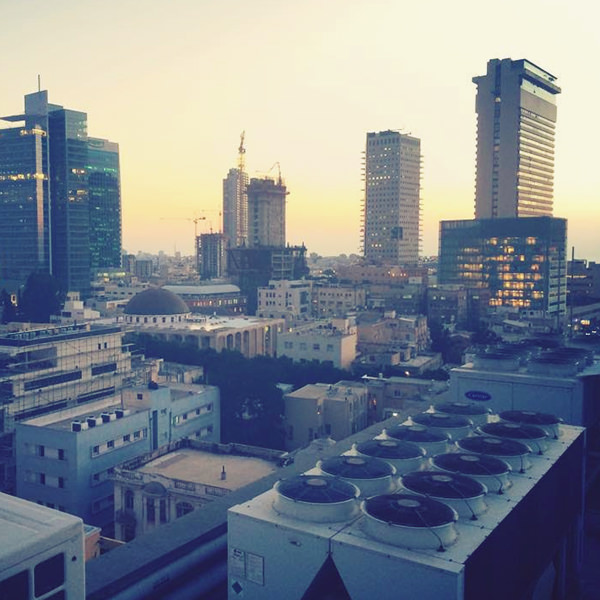
As much as it is a Venice Beach on the Mediterranean, Tel Aviv is also Israel’s very own Silicon Beach, part and parcel to Israel being the Silicon Valley of the Middle East. The city’s skyline is constantly changing, always new construction going up amongst sleek, glistening skyscrapers made of glass and steel. Seaward from the collection of inland office buildings, luxury hotels dot the coast. Among them is the Dan Panorama, a looming, white monolith facing the sea.
On the hotel’s ground level nearby the parking lot and backdoor elevators, a group stands huddled in the shade, escaping the hot June sun, discreetly puffing joints for a moment before returning to an elaborate conference hall. Upstairs, silver trays of baked salmon and couscous, coffee and tiramisu satisfy munchies and feed hundreds of guests from around Israel and the world at Cann10, one of many medical cannabis conferences to happen in the Holy Land. The conference features seminars led by international academics on topics like “the real challenge with pharmacokinetics,” “the future of cannabis clinical research,” “cannabinoid biosynthesis,” and more — not to mention a presentation by Raphael Mechoulam, himself, and an introduction to the conference by Member of the Knesset Tamar Zandberg, one of the Israeli cannabis movement’s main political advocates. Outside the main conference room, booths for Israeli medical marijuana, tech, horticultural, genetic, and other companies fill a large banquet room.
“A lot of industry players are expecting a large amount of investment in the cannabis industry in Israel,” says Saul Kaye, founder of CannaTech, another medical marijuana tech conference. He predicts Israel’s industry will see $1 billion in growth over the next two years.
“These studies aren’t being done anywhere else in the world. The level of science being applied to cannabis in Israel is breathtaking,” Kaye says. That’s because Israel looks at cannabis as a true medicine, no different than how other companies in America and beyond look at pharmaceutical solutions. “If you’re giving a product to your kids who have epilepsy, and there’s variation in how you grew it, extracted it, and gave it to a person, at the end of the day that’s not medicine,” he says. “In Israel, we’re getting it to a stable, regular medicine that’s helping treat your disease.”
Cannabis in Israel crosses social boundaries, touching all facets of society, from Haredim to Arabs, young to old, and every single person who’s experienced any form of trauma, serving in the army or merely living in a country that’s never known peace.
“We are a whole country in PTSD all the time,” says Shredder. “It’s a very stressful life to live in Israel. You got a little war here or there, everyone knows someone who was injured in some kind of event, whether it was the army or a terror attack.”
In 2014, researchers at Ariel University conducted a study on 2,235 Israeli veterans with diagnosed PTSD. Eighty percent of them had been exposed to “major trauma.” Moreover, the IDF’s combat units with the highest rates of PTSD are also considered to be the most elite. And while Israel has been found to have one of the lowest rates of PTSD in the world, those findings were qualified with the likelihood that few people with PTSD actually seek out treatment.
In the US, it’s common to use pills for stress and pain (hence America’s nationwide opioid epidemic), but less so in Israel, Shredder adds. “I know a lot of people who were traumatized on different levels during their military service, which is obligatory for men and women in Israel, and I can say cannabis was the only thing that really helped them. In ten to twenty years, legalization will be so obvious.”
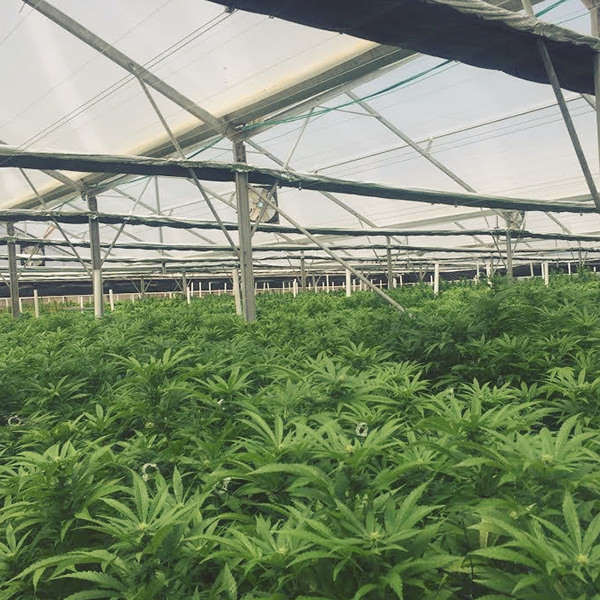
New regulations to expand and open up the medical marijuana market, however, recently passed through the Knesset. The number of companies will eventually increase and patients will be able to buy weed out of more than just one pharmacy. There’s also been a push toward a freer market and more flexible pricing. And moreover, the government approved plans to export medical marijuana to certain locations in Europe, such as the Czech Republic. The catch is that everything bureaucratic in Israel happens at a snail’s pace. It’s unclear when all these proposed regulations will actually become a reality. Meanwhile, the medical market base of patients, technology, and genetics is rapidly expanding.
At least Israel has a “real medical” program, Luxenbourg admits, rather than what he calls the American “recramedical” model. “You don’t have patients prescribed by a doctor and followed up by a physician for effects, side effects, and doses of cannabis,” he says. And since medical cannabis is completely legal and part of a centralized program under the Health Ministry’s supervision, Israeli patients, doctors, growers, and scientists can enjoy a robust research program. Because patients sign up with specific companies, the breeders who work for said companies can manipulate plant genetics to accommodate the specific needs of their patient base.
The collaboration between growers and scientists is unprecedented and in the United States is only fantasy, given that marijuana’s Schedule I status hinders any opportunity for true research. In Israel, clinical trials consist of patients consuming cannabis in hospitals, where doctors and scientists can study the effects.
In the meantime, many American cannabis companies are planting seeds in Israel, where the law won’t stand in their way. Meanwhile, the Israeli public, like the American public, are waiting for their government to lift prohibition altogether: Not until cannabis is fully legal can everyday citizens pass the peace pipe, well, in peace.





